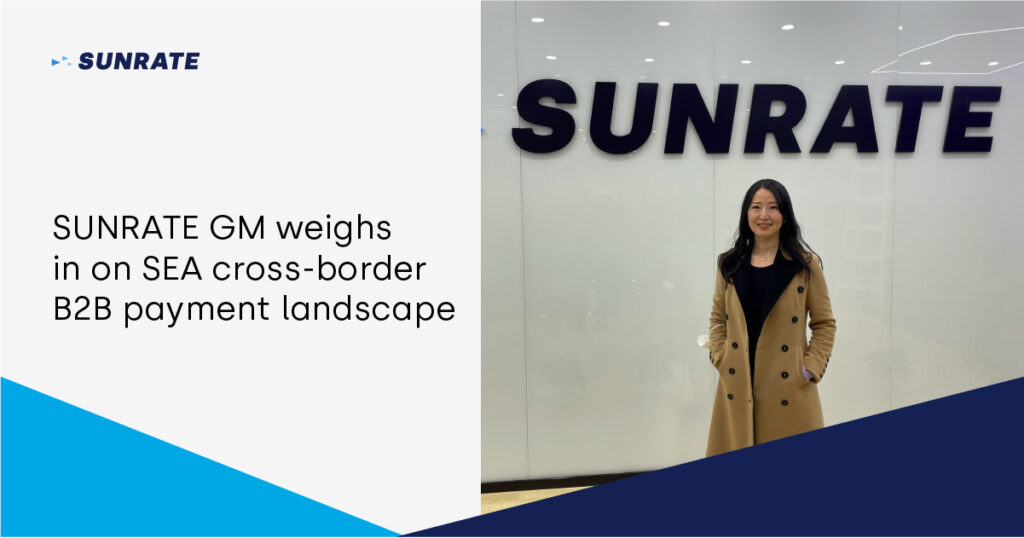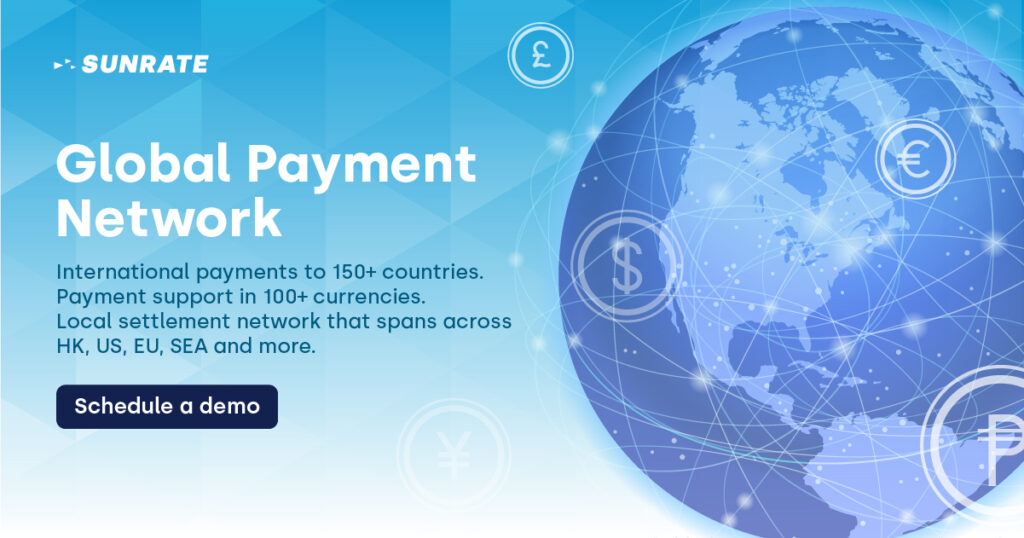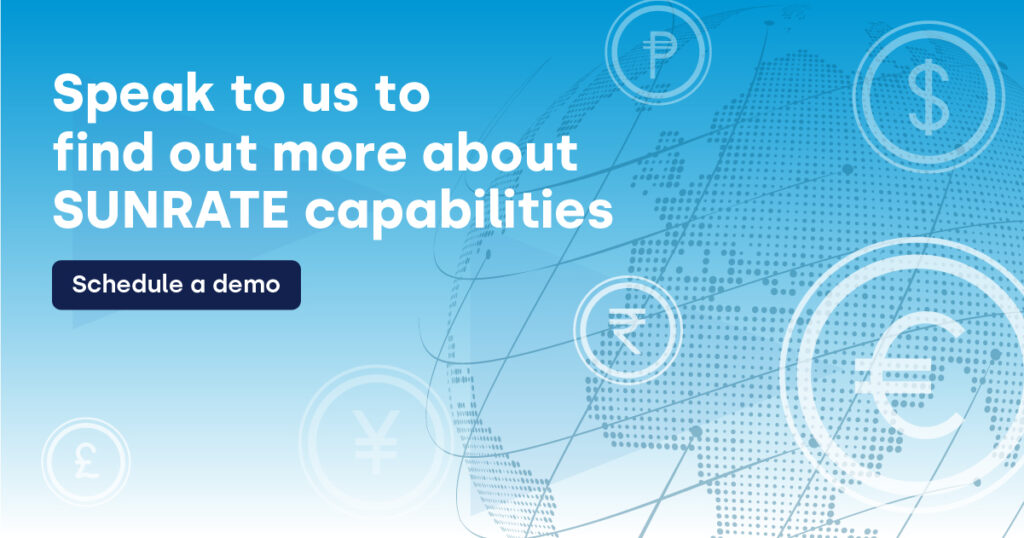


According to Citi - Your Partner Bank in ASEAN report, when perceived as a single market, SEA has the 3rd largest population after China and India. With nearly half a billion internet users, majority of whom shop online, digital payments are sure to dominate e-commerce transactions. These e-commerce transactions are also projected to hit US$1 trillion in Gross Merchandise Value (GMV) by 2030. SMEs are the economic backbone - most of them are either already operating or seeking to scale across the region.
According to another report by Frost & Sullivan, the cross-border B2B payments market in SEA is expected to reach $110 billion by 2025, growing at a compound annual growth rate (CAGR) of 19.8%. However, despite this growth, the region faces several challenges when it comes to cross-border B2B payments, such as currency volatility, regulatory barriers, and limited access to banking infrastructure.
Unique cross-border B2B payment challenges
1. Currencies volatility
The currencies of SEA countries can be highly volatile, making it difficult to predict exchange rates and resulting in unpredictable transaction costs. Fluctuations in exchange rates can also result in hidden fees and additional costs, such as foreign exchange spreads and transaction fees, which can impact businesses' bottom line. To address this challenge, businesses can use currency risk management tools, such as hedging and forward contracts, to minimise the impact of currency fluctuations. Additionally, businesses may consider using multi-currency accounts or digital wallets to hold funds in different currencies, which can help them avoid costly currency conversions.
2. Regulatory barriers
Each country in SEA has its own regulatory environment, which can create a complex and time-consuming process for businesses looking to make cross-border payments. Different countries may have different regulations regarding foreign exchange controls, anti-money laundering, and data protection, which can make it difficult for businesses to navigate and comply with regulations. Additionally, the lack of standardisation in payment systems across SEA can further complicate matters for businesses. To overcome regulatory barriers, businesses need to stay up-to-date with the latest regulations and requirements in each country they operate in and consider working with a trusted partner or third-party provider with expertise in cross-border B2B payments in the region.
3. Lack of standardisation
Each country in SEA has its own payment system, and there is no standardised platform or mechanism for cross-border payments in the region. This can make it difficult for businesses to navigate the payment landscape, leading to inefficiencies and increased costs. In addition, the lack of standardisation can also lead to issues such as payment delays, errors, and disputes, which can further impact the bottom line of businesses. To address this challenge, businesses can consider working with third-party providers that offer cross-border payment solutions and have expertise in navigating the payment landscape in the SEA region. Additionally, the adoption of standardised payment systems and platforms across SEA could help to streamline the cross-border payment process, reducing inefficiencies and costs for businesses.
4. Limited access to banking infrastructure
In many parts of SEA, access to banking services and infrastructure is limited, which can make it difficult for businesses to make and receive cross-border payments. This is especially true for small and medium-sized enterprises (SMEs) that may not have the resources or connections to access banking infrastructure in other countries.
Additionally, traditional banking services in SEA can be expensive, time-consuming, and often involve a lot of paperwork, further exacerbating the challenge of limited access to banking infrastructure. To overcome this challenge, businesses can consider using alternative payment methods, such as digital wallets or online payment platforms, which are often more accessible and cost-effective than traditional banking services. Furthermore, FinTech companies are increasingly offering innovative solutions that can help businesses to navigate the complex cross-border payment landscape in the region.
5. Security concerns
The SEA region has a high incidence of cybercrime and fraud, which can put businesses at risk when conducting cross-border transactions. In addition, the lack of standardisation in payment systems across SEA can make it difficult to implement consistent security protocols, leading to potential vulnerabilities. Businesses must ensure that they have robust security measures in place to protect against cyber threats, including data encryption, multi-factor authentication, and regular security audits. Adopting a risk-based approach to cross-border payments can help businesses to assess and mitigate security risks effectively. By implementing strong security measures and working with trusted partners, businesses can navigate the complex security landscape in SEA and ensure that their cross-border payments are processed securely and efficiently.
Unique cross-border B2B payment challenges
With the advancement of technology and globalisation, there have been significant developments in cross-border payment systems, making it easier and more efficient to conduct international transactions. Here are some notable cross-border payment opportunities:
1. International wire transfers:
Wire transfers allow funds to be sent electronically from one bank account to another across different countries. Banks and financial institutions facilitate this process, but it often involves high fees and longer processing times.
2. Online payment platforms:
Online payment platforms provide convenient and secure ways to send and receive payments internationally. These platforms offer various features like currency conversion, multi-currency wallets, and integration with e-commerce platforms, making cross-border transactions more accessible.
3. Open banking and API Integration:
Open banking initiatives and the use of application programming interfaces (APIs) allow financial institutions to securely share customer data and enable seamless cross-border payment experiences. This approach fosters innovation and collaboration among banks, fintech companies, and other financial service providers.
4. Cross-border e-commerce:
The rise of cross-border e-commerce platforms has expanded opportunities for international sellers and buyers. Platforms like Amazon, Alibaba, and eBay enable businesses to reach customers worldwide and offer integrated payment solutions that cater to cross-border transactions.
Could Fintech be the solution to cross-border B2B payment challenges?
According to a report by Google, Temasek, and Bain & Company, the fintech sector in SEA is set to grow to $140 billion by 2025, driven by the increasing adoption of digital payments and the need for innovative solutions to address cross-border payment challenges.
Fintech companies are offering solutions that can help businesses overcome the challenges of currency volatility, regulatory barriers, a lack of standardisation, limited access to banking infrastructure, and security concerns in cross-border B2B payments. For instance, online payment platforms can provide a more cost-effective and efficient alternative to traditional banking services.
Furthermore, fintech companies are increasingly collaborating with traditional financial institutions and government bodies to develop solutions that can address cross-border payment challenges. By leveraging innovative solutions and collaborating with traditional financial institutions and government bodies, fintech companies can help businesses navigate the complex cross-border payment landscape and ensure that their payments are processed quickly, efficiently, and securely.
About SUNRATE
Having a trusted payment service provider is crucial in solving many of the challenges (which are shared below) that SMBs face. With SUNRATE's cutting-edge proprietary platform, extensive global network, and robust APIs, we have enabled companies to operate and scale both locally and globally in 150+ countries and regions. SUNRATE is the intelligent global payment and treasury management platform for businesses worldwide.
SUNRATE can:

With its global headquarters in Singapore and offices in Hong Kong, Jakarta, London and Shanghai, SUNRATE partners with the top global financial institutions, such as Citibank, Standard Chartered, Barclays and is the principal member of both Mastercard and Visa. We are licensed and regulated by the Financial Conduct Authority of the UK, the Bank Indonesia, the Hong Kong Customs, and the Monetary Authority of Singapore.
To find out more about how SUNRATE can help your business via B2B payments, connect with us today.

Share to
By clicking Subscribe, you have read and agreed to our《《Privacy and Terms》》

Commercial cards are reshaping the B2B payment landscape, presenting businesses with an exciting opportunity to embrace innovation and drive their financial processes to new heights.


Effortlessly and economically settle payments to your Chinese suppliers. When it comes to making international payments, businesses seek swiftness, simplicity, and affordability. This is especially crucial for transactions involving China, as businesses frequently encounter various obstacles like rigorous declaration procedures, currency restrictions, regulatory compliance, foreign exchange uncertainties, exorbitant fees, and language barriers during administrative […]


In recent decades, China has emerged as a global economic powerhouse, reshaping the dynamics of international trade and becoming a driving force behind the success of numerous businesses worldwide. Even though it is still considered as an emerging market, the sheer scale and potential of China’s market have drawn the attention of entrepreneurs and corporations […]

We hope to use cookies to better understand your use of this website. This will help improve your future experience of accessing this website. For detailed information on the use of cookies and how to revoke or manage your consent, please refer to our < privacy policy >. If you click the confirmation button on the right, you will be deemed to have agreed to use cookies.